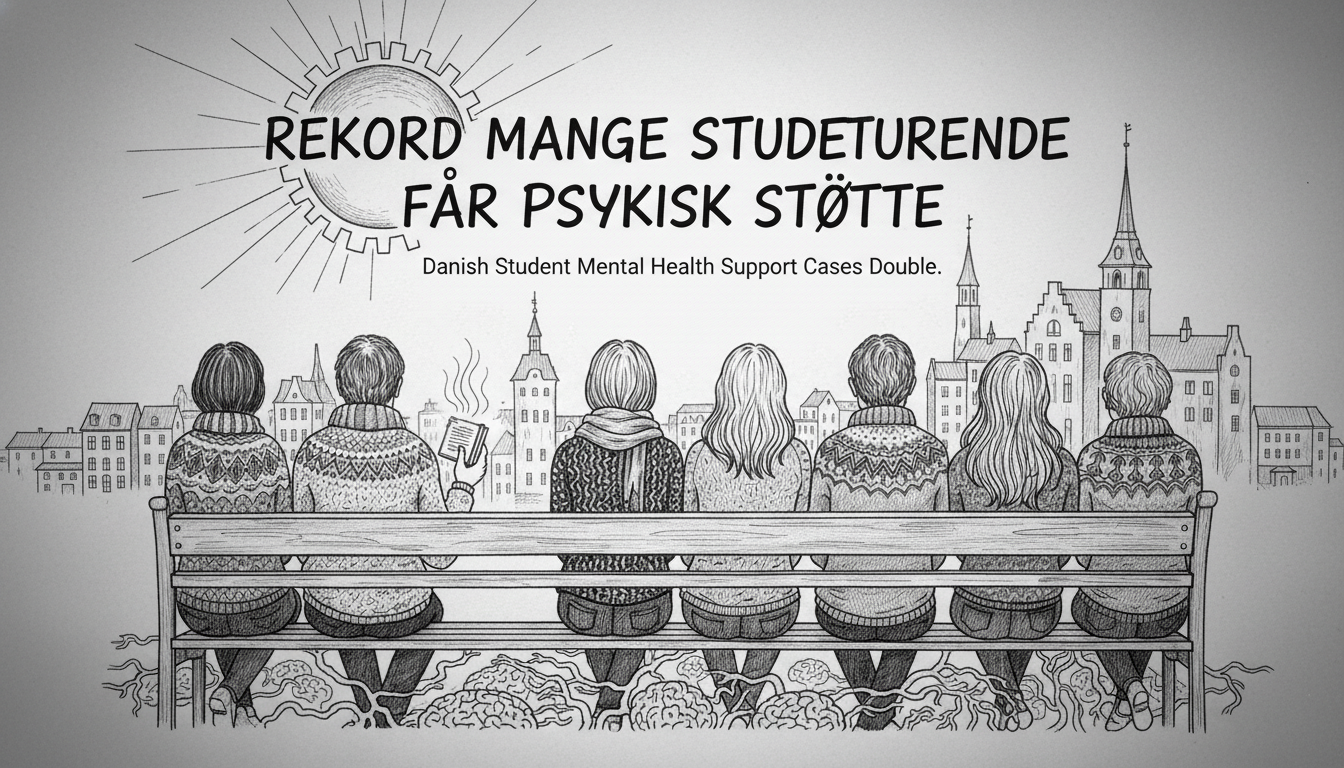A growing number of Danish students now receive additional financial support due to mental health challenges. The figures show a near doubling of students qualifying for special education grants over five years. Approximately 12,538 students currently receive the disability supplement for psychological conditions. This represents a substantial increase from 6,622 students just five years ago.
Danish students with documented mental health conditions can apply for various forms of assistance. These include supplementary student grants, additional tutoring hours, and private examination rooms. The education system provides these accommodations to help students complete their degrees despite psychological challenges.
The rising numbers reflect broader trends in Nordic youth mental health. Young people across Scandinavia report increasing psychological distress. Education officials note this pattern mirrors similar developments in Sweden and Norway. The Danish student grant system, known as SU, represents one of Europe's most comprehensive student support programs.
International students in Denmark should understand how this system works. The SU program provides financial assistance to all eligible students enrolled in higher education. Those with documented disabilities can apply for additional supplements. The application process requires medical documentation and approval from educational institutions.
Why has mental health support demand increased so dramatically? Experts point to multiple factors. Modern academic pressures combine with social media influences and economic uncertainties. The COVID-19 pandemic also accelerated existing mental health trends among young people. Danish universities have responded by expanding counseling services and accommodation options.
This situation raises important questions about educational accessibility. Are institutions doing enough to support vulnerable students? The substantial funding increase suggests recognition of the problem. Yet some student advocates argue support services still lag behind actual needs. The conversation continues about how best to balance academic standards with mental health accommodations.
The Danish approach offers lessons for other education systems. Their model combines financial support with practical academic accommodations. This comprehensive strategy helps prevent students from dropping out due to mental health challenges. Other countries might learn from Scandinavia's integrated support systems.
What does this mean for Denmark's future workforce? Better educational completion rates could strengthen the national economy. Students who receive adequate support are more likely to graduate and enter professional fields. The investment in mental health accommodations may yield long-term economic benefits. Society gains when educational barriers related to health conditions are removed.
The growing numbers also highlight successful destigmatization efforts. More students feel comfortable seeking help for mental health challenges. This cultural shift represents positive progress in how Scandinavian societies address psychological wellbeing. The increasing utilization rates suggest reduced shame around mental health conditions.
Education authorities continue monitoring these trends closely. They must balance support for vulnerable students with maintaining academic standards. The conversation about mental health in education will likely intensify in coming years. Other Nordic countries watch Denmark's experience with keen interest.

